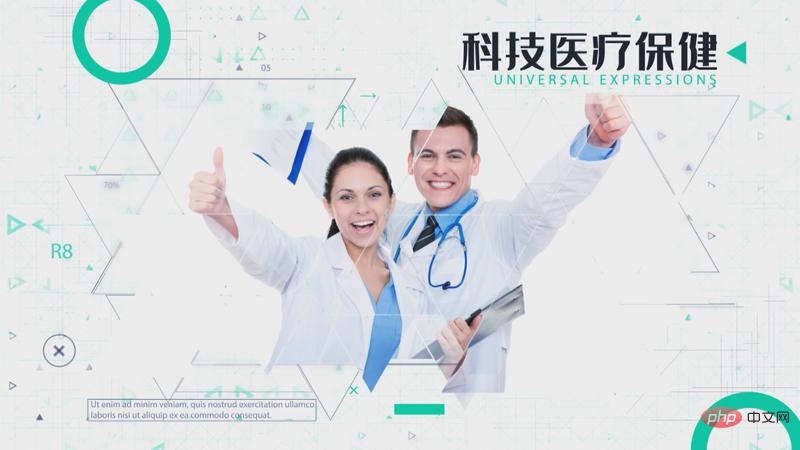

Now, let’s take a look at some of the important technological advances that will impact the future of healthcare:
Home care can provide more valuable, higher-quality care
The biggest paradigm shift will be from care provided primarily in hospitals to care provided in the home. Innovative tools such as ultra-wideband radar technology, non-invasive sensors integrated into living environments to monitor daily activities, and handheld devices that allow doctors to remotely monitor things like electrocardiograms, pulse oximetry, and infrared skin temperatures will make this possible. possible. In this case, the hospital can serve as a command center for tracking patient health and the primary location for performing surgeries.
Increase investment in digital health market
The pandemic has highlighted the need for real-time, error-free data, and healthcare that is technologically capable of doing so Health care system needs. In addition to aiding data collection, technology is also critical for data organization and analysis. In today's uncertain and chaotic health environment, digital tools can be used to maintain and track patient health records, as well as generate important predictions. If used correctly, artificial intelligence (AI), machine learning, robotic process automation (RPA), big data analytics, blockchain technology, cloud computing and quantum computing can revolutionize existing healthcare systems and elevate them to global standard.
It can help obtain useful information for real-time decision-making without putting a strain on the healthcare environment. But it is critical to scale these technologies and create ecosystem approaches that maximize the social benefits of data.
The Growth of Telemedicine
As telemedicine continues to grow rapidly, electronic medical records provide a huge help. Electronic medical records are helpful because they are available whenever needed. This is important because most patients seek a second opinion from a different specialist.
Telemedicine is a revolutionary way to communicate and provide care to people and medical professionals. In addition to intermittent treatment, telemedicine will continue to expand into the management of chronic conditions and specialty care, including mental health services. Patients now have easier access to more convenient medical services. In this regard, a national telemedicine psychology program was announced in the 2022 federal budget.
Additionally, with electronic medical records, all patient medical history, test results, diagnoses and related data can be centrally stored in one online location. This data enables more precise and targeted treatments and the ability to uncover personal health patterns.
Internet of Things (IoT)
Another important area driving amazing growth is the Internet of Things (IoT), which brings engineering and healthcare together. The Internet of Things (IoT) is revolutionizing the healthcare industry by intelligently connecting devices, systems and items used by billions of people around the world to use data more effectively and enable faster, more focused and more contextual decisions.
The impact of the Internet of Things on the healthcare industry is huge. The healthcare industry is evolving globally to become a well-coordinated, user-centric and more efficient system. The advanced technologies of IoT are driving revolutionary and life-enhancing solutions across the healthcare industry. IoT accelerates process automation, and the benefits are limitless.
Harnessing the power of drone technology
Through the use of drones, the healthcare industry will benefit from faster sample collection, easier access to remote areas, and provision of healthcare services in tier II/III/IV towns.
Drones are helping to increase access to high-quality healthcare by ensuring timely and cost-effective delivery of medical supplies and test samples. Drones help overcome connectivity issues as they can deliver items such as life-saving medicines, emergency supplies and prescriptions to remote areas such as tier-II/III/IV cities and villages. Areas that were previously cut off by roads and inaccessible are now accessible, improving the country's transportation network and strengthening the healthcare situation.
For example, blood samples are placed in temperature-sensitive storage boxes connected to the drone and then sent to a predetermined laboratory for analysis. Drone sample delivery allows medical professionals to quickly obtain laboratory test results needed for diagnosis and treatment. Drone technology helps save time and overcome traffic delays.
Genomic Sequencing
The accessibility of cutting-edge genome sequencing technologies such as NovaSeq6000 will be particularly beneficial because governments have not yet implemented widespread screening programs for genetic disorders or rare diseases. NovaSeq6000 technology provides high throughput and flexibility for studies that require processing large amounts of data quickly and cost-effectively.
It is well known that various geographical regions in India, especially North India, have a high rate of family intermarriage and genetic problems, which increases the risk of fetal rare diseases. Now that the system is available, patients in neighboring states and territories will benefit from shorter testing times and cost savings.
Summary
Looking ahead, it is critical that the healthcare industry focuses on one goal: ensuring that everyone, regardless of circumstance, is Access to high-quality and affordable health care. This will become a reality thanks to advanced technologies that have become even more powerful by expanding mobility.
The above is the detailed content of How will technological breakthroughs impact the future of healthcare?. For more information, please follow other related articles on the PHP Chinese website!
 Application of artificial intelligence in life
Application of artificial intelligence in life
 What are the applications of the Internet of Things?
What are the applications of the Internet of Things?
 What is the basic concept of artificial intelligence
What is the basic concept of artificial intelligence
 The m2m concept in the Internet of Things
The m2m concept in the Internet of Things
 What are the free crawler tools?
What are the free crawler tools?
 The role of cloneable interface
The role of cloneable interface
 How to solve the problem of not being able to create a new folder in Win7
How to solve the problem of not being able to create a new folder in Win7
 oncontextmenu incident
oncontextmenu incident




